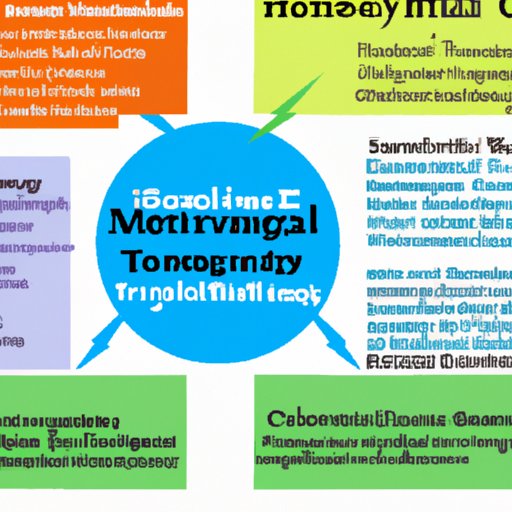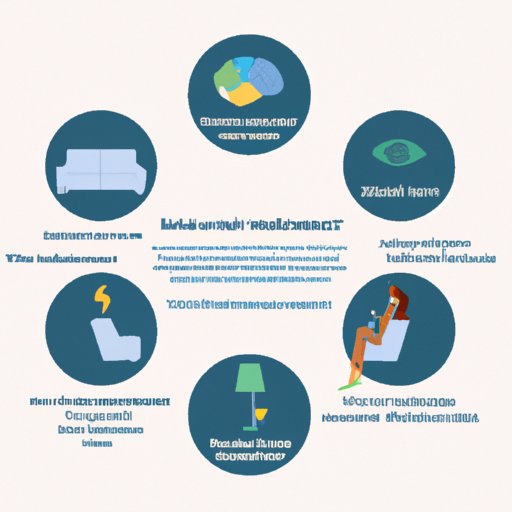Introduction
Mental health counseling is a growing field that offers individuals a rewarding career path for helping others. Mental health counselors provide therapy and support services to people who are struggling with a range of emotional, psychological, and behavioral issues. Mental health counselors must have the right combination of education, experience, and compassion to help their clients reach their goals and improve their lives.

Definition of Mental Health Counseling
Mental health counseling is a form of psychotherapy that focuses on improving the mental health and well-being of individuals. Mental health counselors work with clients in one-on-one sessions or group settings to identify and address underlying issues that may be causing distress. Mental health counselors create treatment plans and provide supportive counseling to help clients manage their emotions, cope with stress, and make positive changes in their lives.
Overview of the Benefits of Pursuing a Career in Mental Health Counseling
Mental health counselors have the opportunity to make a real difference in the lives of their clients. They can help individuals who are struggling with depression, anxiety, addiction, and other mental health issues find the resources they need to live healthy and productive lives. Mental health counseling also offers counselors the chance to build meaningful relationships with their clients and help them through difficult times. Additionally, mental health counselors have the potential to earn a good salary and enjoy job security.
Education and Licensing Requirements
Becoming a mental health counselor requires completing the necessary education and licensure requirements. These vary from state to state, but typically include earning a master’s degree in psychology, counseling, social work, or another related field, and obtaining a license to practice.
What Degrees Are Required?
Most states require mental health counselors to have a master’s degree in psychology, counseling, social work, or a related field. The degree should include coursework in mental health counseling, psychopathology, human growth and development, and other relevant topics. In some cases, a bachelor’s degree in psychology or a related field may suffice, depending on the state’s requirements.
What Licenses Are Needed?
In addition to a master’s degree, most states require mental health counselors to obtain a license to practice. To become licensed, applicants must usually pass a written exam administered by their state’s licensing board. The exam covers topics such as ethics, diagnosis, and treatment of mental health disorders. Applicants must also complete a certain number of supervised clinical hours before they can receive their license.

Types of Mental Health Counseling
Mental health counselors specialize in different types of counseling based on their educational background and experience. Some of the most common types of mental health counseling include cognitive-behavioral therapy, psychodynamic therapy, and other forms of counseling.
Cognitive-Behavioral Therapy
Cognitive-behavioral therapy (CBT) is a type of therapy that focuses on changing negative thoughts and behaviors. It helps individuals identify and challenge unhelpful patterns of thinking and replace them with more helpful and adaptive thoughts and behaviors. CBT has been found to be effective in treating a variety of mental health issues, including depression, anxiety, and substance abuse.
Psychodynamic Therapy
Psychodynamic therapy is a type of counseling that focuses on exploring the unconscious thoughts and motivations that drive behavior. It helps individuals gain insight into their own behavior and understand how past experiences may be influencing their current actions. Psychodynamic therapy is often used to treat depression, anxiety, and trauma.
Other Types of Mental Health Counseling
In addition to CBT and psychodynamic therapy, there are many other types of counseling that mental health counselors use to help their clients. These include interpersonal therapy, family therapy, solution-focused therapy, and dialectical behavior therapy. Mental health counselors may specialize in one or more of these types of counseling.
Day-to-Day Duties of a Mental Health Counselor
The day-to-day duties of a mental health counselor vary depending on the type of counseling they practice and the needs of their clients. Generally, mental health counselors assess client needs, develop treatment plans, and provide individual and group counseling. Mental health counselors may also provide additional services, such as crisis intervention and referral to community resources.
Assessing Client Needs
Mental health counselors work with clients to assess their needs and develop an appropriate treatment plan. This involves conducting interviews, administering tests, and gathering information about the client’s medical history, family dynamics, and lifestyle. Assessing client needs is an important step in determining the best course of action for each individual.
Developing Treatment Plans
After assessing a client’s needs, mental health counselors develop a customized treatment plan that addresses the client’s individual goals. The treatment plan outlines the objectives of therapy, the strategies that will be used to achieve those objectives, and the timeline for reaching them. Mental health counselors work with their clients to ensure that the treatment plan is tailored to their specific needs.

Providing Individual and Group Counseling
Mental health counselors provide individual and group counseling to their clients. During individual counseling sessions, mental health counselors work one-on-one with clients to explore their thoughts, feelings, and behaviors, and help them develop healthier coping skills. In group counseling sessions, mental health counselors facilitate discussions among a group of clients to help them support each other and work through shared issues.
Navigating the Job Market as a Mental Health Counselor
Finding a job as a mental health counselor can be a challenging process. Mental health counselors must build their professional network, apply for jobs, and prepare for interviews in order to stand out from the competition. With the right strategies, mental health counselors can increase their chances of finding the right job.
Building Your Professional Network
Having a strong professional network is essential for any job search. Mental health counselors should take advantage of networking opportunities, such as attending conferences and joining professional organizations. Building relationships with other professionals in the field can open up new job opportunities.
Applying for Jobs
When applying for jobs, it’s important to tailor your resume and cover letter to the position you’re seeking. You should highlight your qualifications, experience, and skills that are relevant to the job. Additionally, you should research the organization and be prepared to explain why you would be a good fit for the position.
Preparing for Interviews
Once you’ve applied for a job, you should prepare for the interview. This includes researching the organization, practicing your answers to common interview questions, and preparing questions to ask the interviewer. Taking the time to prepare for the interview can help you demonstrate your knowledge and enthusiasm for the job.
Conclusion
Becoming a mental health counselor requires completing the necessary education and licensure requirements, specializing in one or more types of counseling, and navigating the job market. With the right combination of education, experience, and compassion, mental health counselors can have a rewarding career helping others improve their mental health and well-being.
(Note: Is this article not meeting your expectations? Do you have knowledge or insights to share? Unlock new opportunities and expand your reach by joining our authors team. Click Registration to join us and share your expertise with our readers.)
